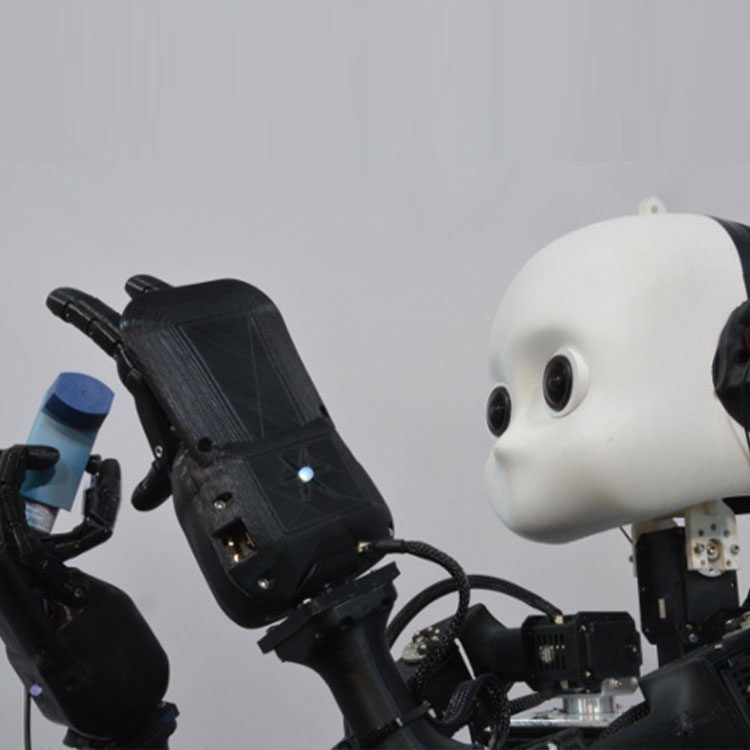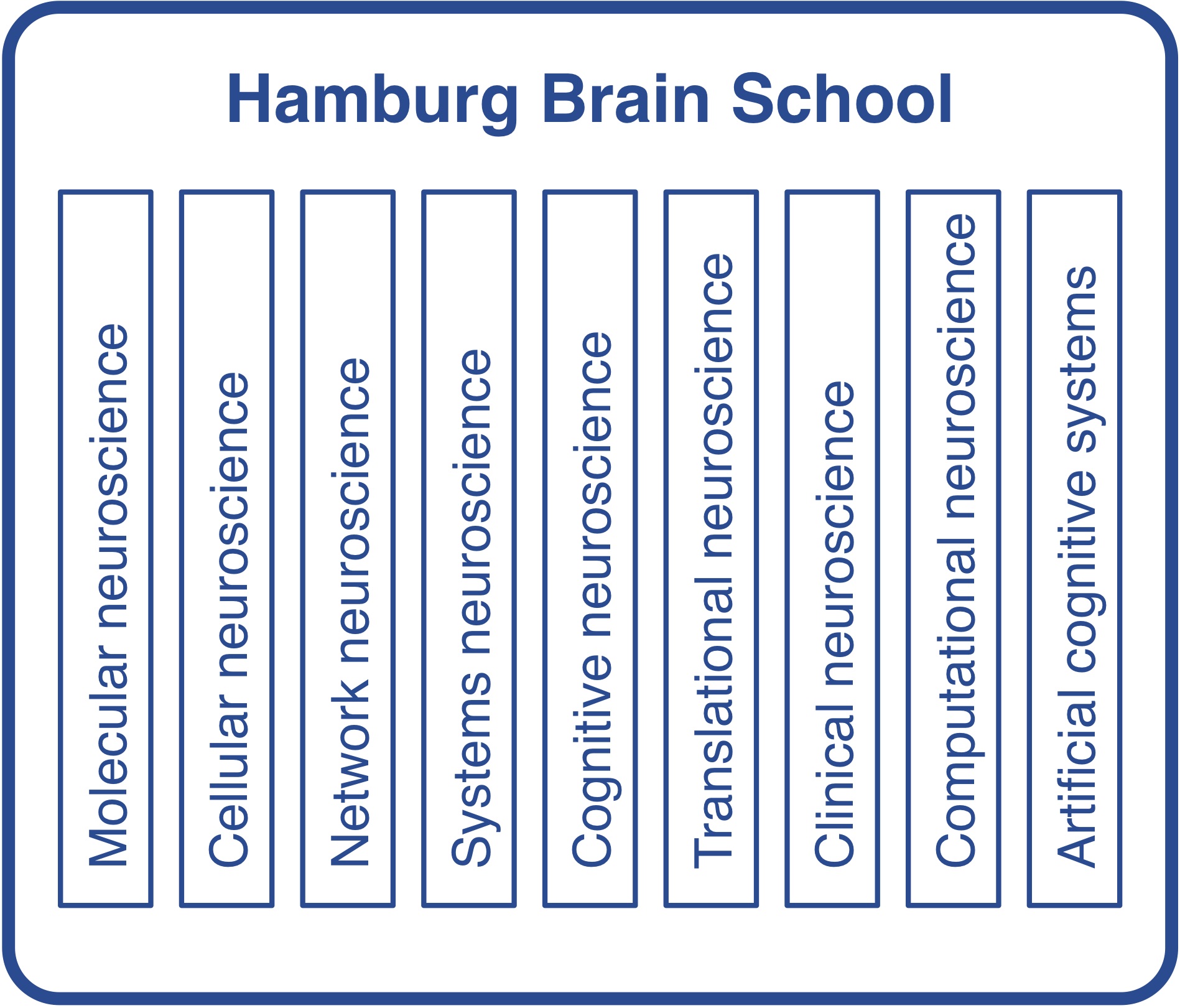
Doctoral students and postdocs enrolled in the HBS perform their research work at one of the departments in the Hamburg Center for Neuroscience (HCNS). Research projects at the HCNS span all areas of neuroscience. They address normal brain function and diseases of the nervous system, bridging the scales from cells and molecules over the mesoscale level to large-scale brain networks with the strong support of neurocomputational approaches.
The goal is to understand mechanisms of brain function and dysfunction, and to translate this knowledge into clinical applications. In addition to understanding the foundations of behavior and cognition in natural systems, an important focus of HCNS research is on investigating and developing artificial cognitive systems.
The HCNS groups strongly cooperate in numerous national and international collaborative projects, including DFG-funded Collaborative Research Centers and Research Units, EU-funded consortia and other research networks (more information can be found at the HCNS website).
Molecular and cellular neuroscience
Molecular and cellular neuroscience
Key topics of HCNS research in the fields of molecular and cellular neuroscience are, among others: intracellular protein transport and sorting; intracellular signaling; mechanisms of signal transmission and dendritic integration; neuronal plasticity, neuromodulation, learning and memory; mechanisms of neurodegeneration, neuroinflammationand neural regeneration.
Faculty involved:
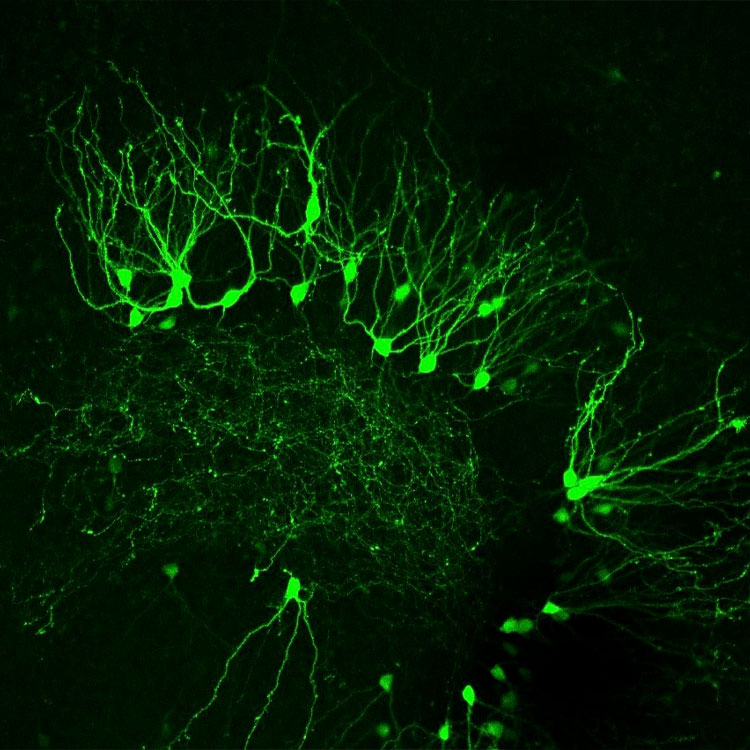

Network neuroscience
Network neuroscience
Network neuroscience is a major focus at the HCNS, linking research on network dynamics at different scales from the microcircuit to large-scale brain networks. Numerous groups focus on structural and functional connectivity in the developing and adult brain, investigating the relation of network communication to behavior and cognitive function. Network pathophysiology is investigated in disorders such as, e.g., stroke, Parkinson’s disease, multiple sclerosis, schizophrenia or autism.
Faculty involved:
Systems and cognitive neuroscience
HCNS groups address the neural mechanisms of a broad variety of sensorimotor and cognitive processes such as: perception and multisensory integration; sensorimotor integration and motor control; executive function and decision-making; expectation, prediction and inference; emotion regulation and stress; arousal, attention, and consciousness;learning and memory; as well as language and social cognition.
Faculty involved:
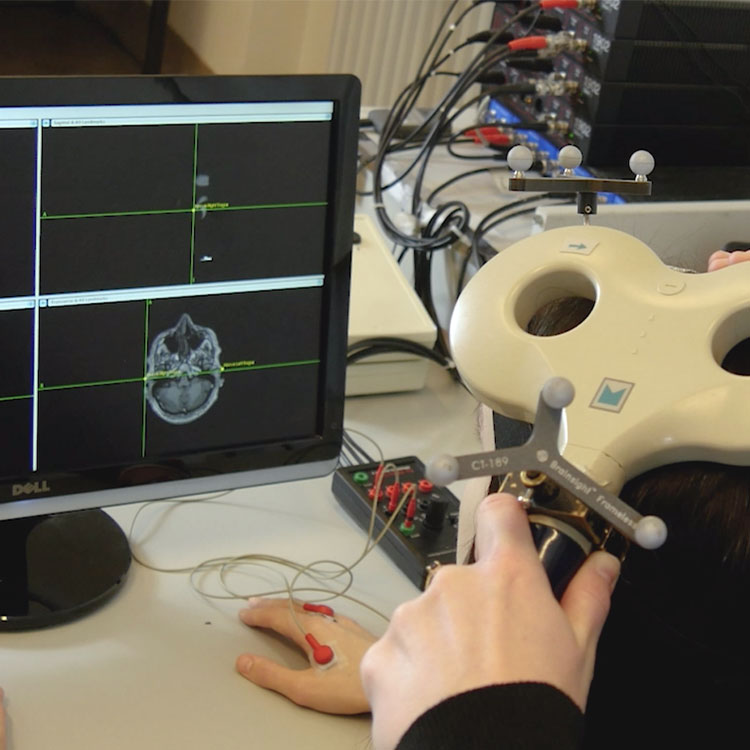
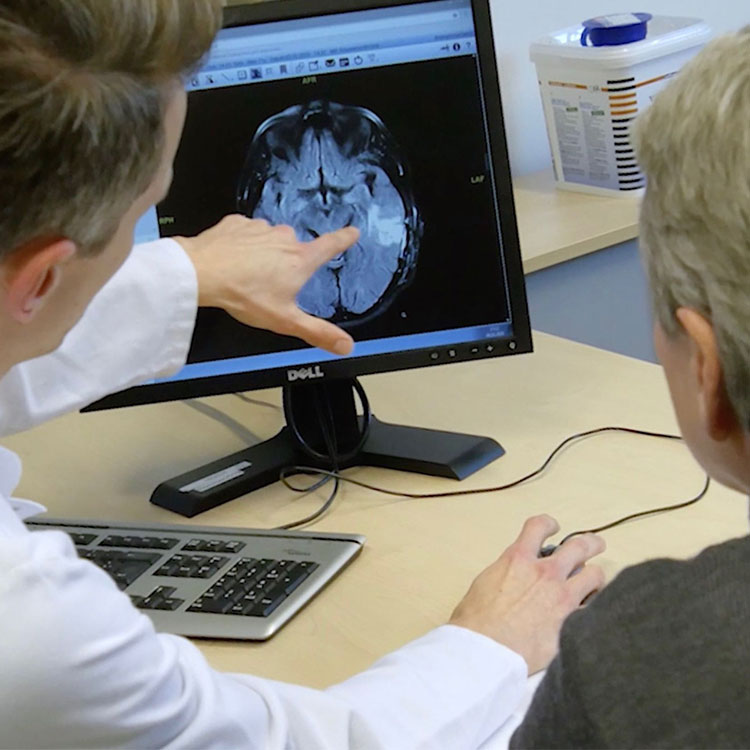
Translational and clinical neuroscience
Translational and clinical neuroscience
By understanding pathological brain functions and disease mechanisms, HCNS groups aim to develop novel and more effective treatments for neurological and psychiatric diseases. Key research fields include: network pathophysiology, neuroplasticity and recovery in stroke and other neurovascular diseases; mechanisms of movement disorders, such as Parkinson´s disease, and interventions such as deep brain stimulation; neuroinflammation and neurodegeneration in multiple sclerosis and CNS infections; pathophysiology of nociception and mechanisms of cognitive pain modulation; psychopathology, learning mechanisms, affective and cognitive processes involved in psychoses, obsessive-compulsive disorder, anxiety and depression; development of behavioral interventions targeting cognitive performance and symptom reduction in mental disorders.
Faculty involved:
Computational neuroscience and artificial cognitive systems
Computational neuroscience and artificial cognitive systems
Computation neuroscience approaches are used to investigate and model brain network architecture and network development, connectivity-based models of brain dynamics, effects of network perturbation and lesion inference. Further key topics are models of neural coding and neural information processing, neural dynamics and oscillations. Studies in neural networks, AI systems and robotic platforms investigate cognitive processes such as attention, saliency detection, active perception, cross-modal learning and multisensory data processing. Virtual, augmented and mixed reality approaches are used to investigate 3D spatial perception, cognition and action.
Faculty involved:
